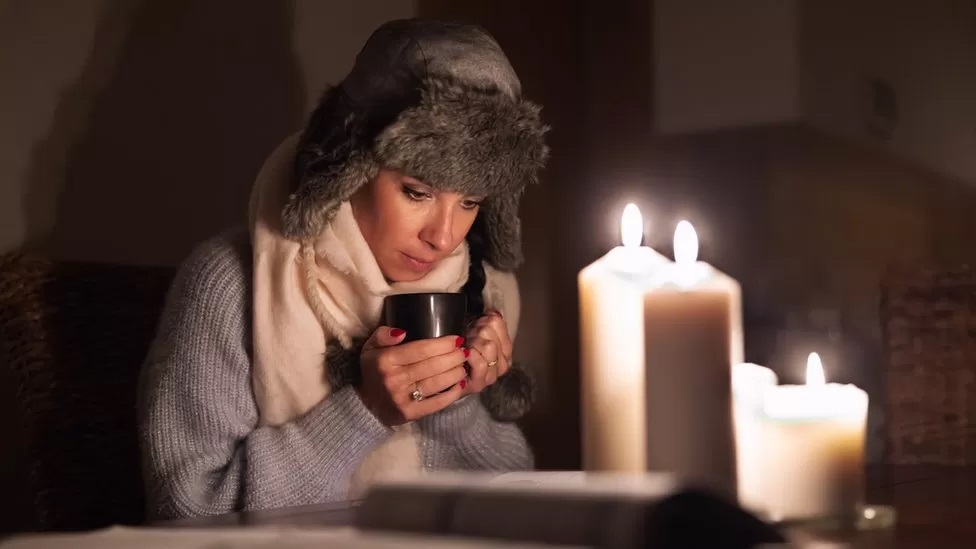
Blackouts would be a last resort this winter if energy supplies run low, National Grid has told the BBC.
Its boss, John Pettigrew, said its “base case” assumption was the UK would have enough supplies to meet heating and lighting demand this winter.
However, he added that short rolling power cuts were a possibility.
“There could be energy shortfalls in the UK and we will manage that very carefully”, Mr Pettigrew said. “This isn’t a time for people to panic.”
“Most importantly what we’re doing is making sure that the infrastructure that we have and the networks are robust and ready for the winter, and I’ve got thousands of engineers making sure that the network is ready for whatever weather we see over the winter.”
Mr Pettigrew said the company was working on a number of scenarios to protect the country against any energy supply shortfall from Europe.
The first option would be to increase supply by restarting mothballed coal-fired power stations. The next step would be to pay households and businesses to reduce consumption during peak times, with short rolling regional outages a last resort.
“If we saw that shortfall coming, the most effective way to manage the rest of the network is to ask the distribution companies to reduce demand and they would do that over that rolling period of around 4 to 7pm”, said Mr Pettigrew.
Last month, National Grid had warned that households could lose power for up to three hours at a time this winter if gas supplies run extremely low, but had added it was an “unlikely” scenario.
Mr Pettigrew told the BBC it would be “common sense” for the government to launch a public information campaign on reducing energy use this winter – a move that ministers have so far avoided.
“‘I know there are discussions between the government and industry about whether there is a need for a campaign,” he said.
“From my perspective, it just makes common sense, not from a security of supply perspective, but when prices are so high, from an economic perspective it makes sense for people to think about how they can reduce their energy consumption,” he added.
Mr Pettigrew said that for the UK to hit government targets of a 400% increase in offshore wind power by 2030, big changes in planning and regulation would be required to speedily build the hundreds of miles of new cables and overhead pylons needed onshore to get the energy from the east coast of the UK, where most will be produced, to the south of England where most of it is used.
“We will need to build about seven times as much infrastructure in the next seven or eight years than we built in the last 32,” he said.
“We’re going to need changes to regulation, to the planning process, but we also need to work with local communities. They should get the benefits when they’re hosting this infrastructure.”
The government has been asked for comment.
National Grid is launching a £50m support fund to be targeted at charities and organisations that help households in financial distress caused by rising energy costs.
Over the next two winters, National Grid said the cash would go to organisations that provide emergency relief to households using pre-payment energy meters, as well as charities that fund energy efficiency measures and others which provide financial advice.
The Fuel Bank Foundation, Affordable Warmth Solutions, and Citizens Advice have each been handed £10m.